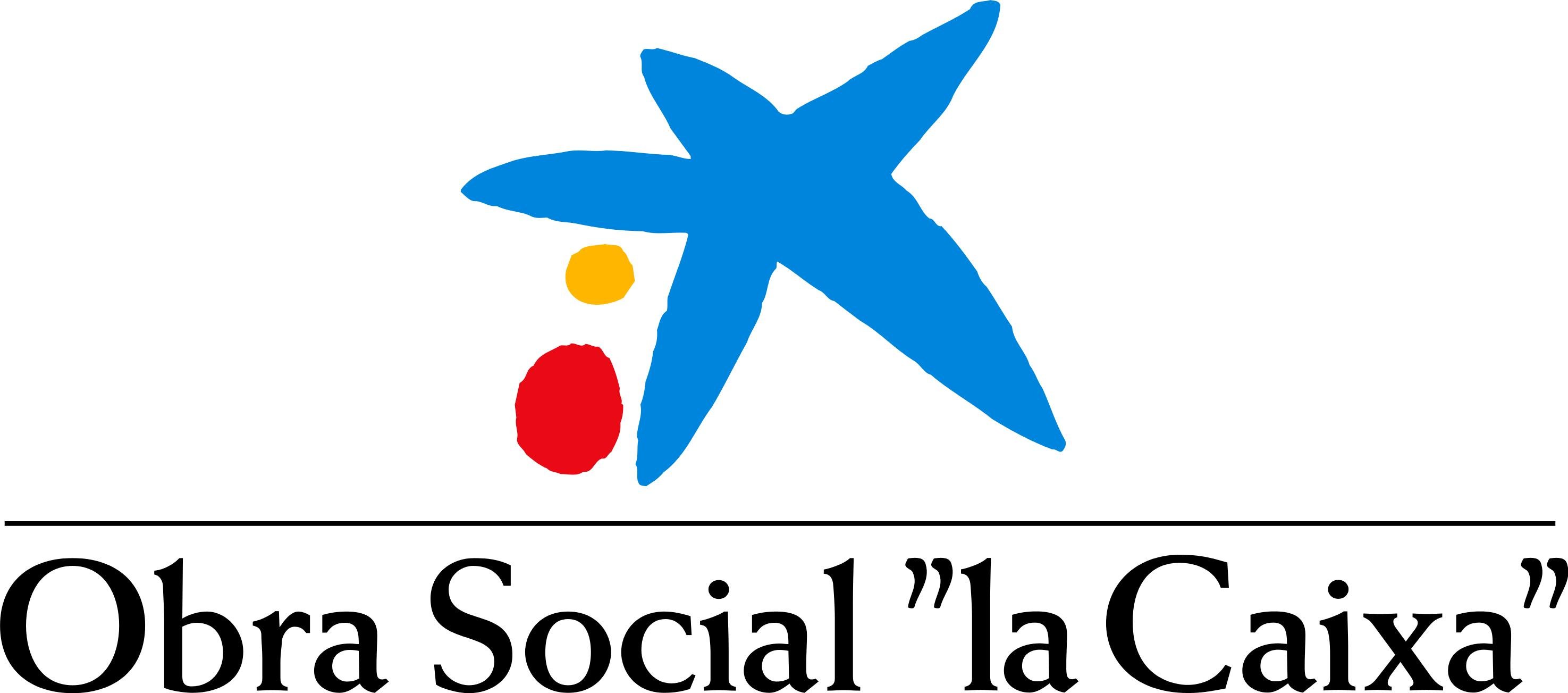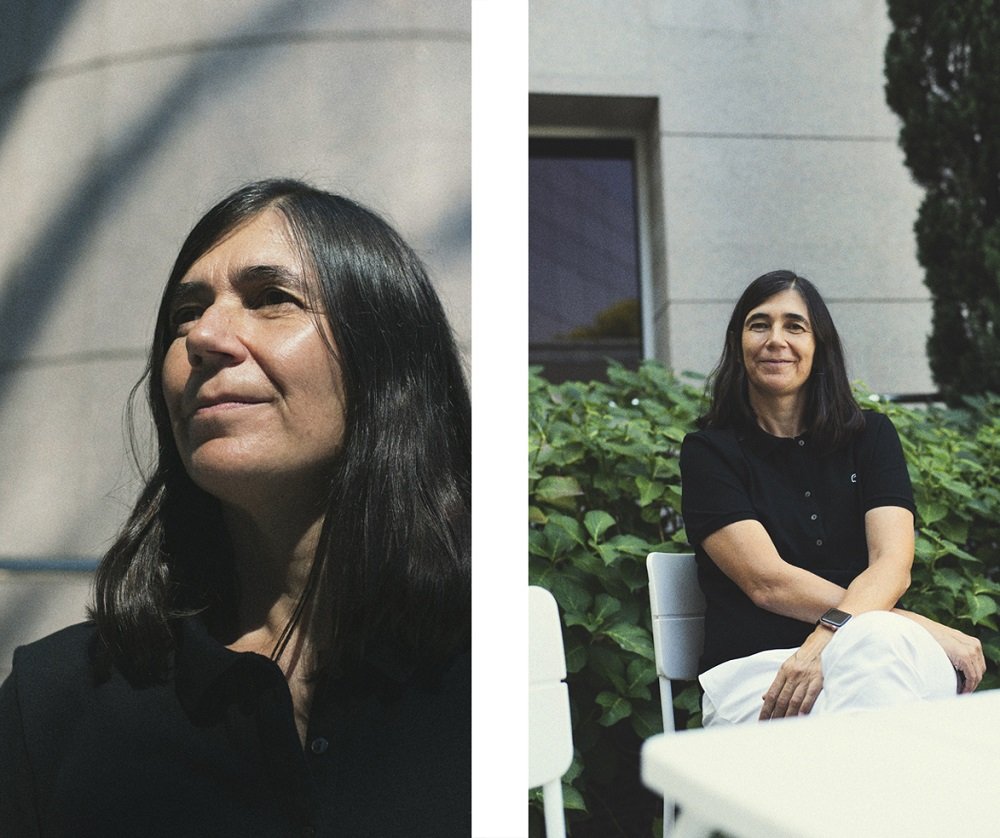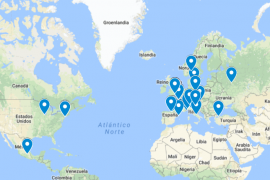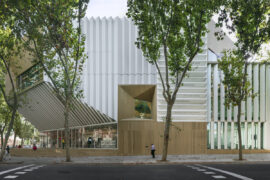We have just been in the European Week of Lung Cancer, on October 19th it will be the World Day against Breast Cancer and on September 24th, the World Day of Research in Cancer. What suggests these dates?
They help to reflect on the importance of research and to spread some important facts: that there are more and more women with lung cancer, that it is much more harmful to smoke for women than for men due to hormones, that mammograms must be done and also ultrasounds, that allow us to detect early breast cancer…
The CNIO (Center for Oncological Research) aims to prevent, diagnose and treat cancer. In what area more progresses are being made?
In treatment. We have a unique drug development program, and we collaborate with the pharmaceutical industry to bring our molecules to market. In addition, one of our spinoffs (companies based on the discoveries of the CNIO), Bioncotech, has generated an antitumor product that has already been applied in clinical trials with cancer patients.
Do you think that something similar to immunotherapy is about to appear, a revolutionary cure that 10 years ago allowed a great advance?
The future is unpredictable. Immunotherapy was discovered by researchers who were not working, by that time, on the popular topics of oncology research. And the same thing happened with the CRISPR technology: a researcher from Alicante studied the bacteria that grow in high concentrations of salt and, suddenly, he found this great tool (a cellular “copy-paste”) that has been the biggest revolution in biotechnology in recent years and that, in addition, opens the door to new therapies. This teaches us an important lesson: that from any investigation can come something that revolutionizes humanity. The good news is that there are many researchers investigating even the most recondite aspects of cancer. But, yes, we must support research in our country so that we can compete with the best.
How did you decide to dedicate yourself to fighting such a big monster, the second cause of death in the world?
I like to understand how life works, but oriented to diseases such as cancer and those associated with aging. Since I started studying biology, these are the subjects that interest me the most.
Is aging the origin of cancer?
Yes. Most of the tumors -mamma, lung, pancreas, prostate…- are associated with aging. They are very rare when we are young, and our cells are aging and accumulating damage that greatly increases the possibility of having them.
Can we do something to delay or even eliminate aging and cancer?
There is a WHO decalogue with common sense advices: exercise, eat more fruits and vegetables and less red meat… As for aging, in the CNIO we study the role of structures called telomeres in their origin, and we have managed to activate telomerase in mice, and thus lengthen their lives and delay pathologies associated with aging, such as Parkinson’s, Alzheimer’s or pulmonary fibrosis. That is to say, we have managed to slow down aging! Although all these studies have been done so far in mice, and still cannot be applied to humans.
 You have been studying telomeres for years, as one of the key issues to stop cancer. What are they, exactly?
You have been studying telomeres for years, as one of the key issues to stop cancer. What are they, exactly?
They are the protective element of the end of chromosomes. They protect our genetic material. If we imagine DNA as the cord of a shoe, the telomeres would be the plastic at the end of the cord. If that plastic wears, the cord will become unusable. In healthy cells the telomeres wear out every time they multiply, something that is necessary to regenerate the tissues. Thus, as we live, our cells age and die. Cancer cells, on the other hand, are immortal because, through the telomerase -mentioned before- which is a molecular machine that lengthens telomeres, they are capable of multiplying indefinitely, as long as they have food. That’s why cancer has also taught us a basic mechanism of aging.
Is the goal to destroy those telomeres in tumor cells?
Exactly. And in the CNIO we have already found chemical molecules that destroy them. And thanks to the support of CaixaImpulse, we are developing the product to license it to a pharmaceutical company that can reach patients.
What do you like most about being a researcher?
For me, research is the best thing in the world. Discovering how life works is fascinating. It’s my passion. I do not consider it work. And if I were to be born again, I would be an investigator again.
But your profile is special, because you’ve always taken the flag to be an art lover. What do you think art brings to science?
No, I’m not special. People that are devoted to thinking and trying to discover what is still unknown like everything: art, cinema… I am not an exception. But I do believe that art is a tool that can be used to convey the importance of science to society. That is why at the CNIO we have the Art and Science initiative: every year we form a partnership between a scientist and an artist so that the artist creates a new work inspired by the work of the scientist. The profits generated are invested in research through our platform of philanthropy “Friends of the CNIO”.
What art or what artists do you admire?
I admire Oteiza -the sculptor- very much. His work thrills me, because he is a clear example of art as a result of an investigation. In that sense I also like Miquel Barceló, José María Sicilia, Agnes Martin… -just to mention some classics- although I love discovering new artists, especially female artists.
Speaking of people that you admire, you have met great scientists along the road…
Many and very important! From Margarita Salas -my thesis director and one of the pioneers in molecular biology in Spain, who has been a great teacher and mentor- to Carol W. Greider – Nobel Prize in 2009 for discovering the enzyme telomerase, with which I did my specialization in the United States- not forgetting Elizabeth Blackburn -her mentor- or Spanish scientists such as Ángela Nieto and Fàtima Bosch. All of them are top-level scientists, to whom I can always ask for advice. More and more women are investigating, although there are less research directors. But this will necessarily change, otherwise we will be losing a lot of talent.
You are Ramón y Cajal National Research Prize, you published articles in Nature and Science, you are recognized all over the world but… for what feat would you like to be remembered?
For having found the role of telomeres in cancer and aging. That’s what I’m most proud of.
And what headline would you like to see in the newspapers tomorrow?
That they have managed to stop metastasis, the process that causes death by cancer. There lies, I believe, one of the future keys to a more successful fight against advanced tumors.
Interview: Ana Portolés
Photograph: Daniel de Jorge
You can read more stories like this on ALMA, the social social media, a digital space devoted to the social field, which brings a new look at the present and the future of society, from an optimistic and diverse point of view, and from all the initiatives that “la Caixa” Foundation promote.






















